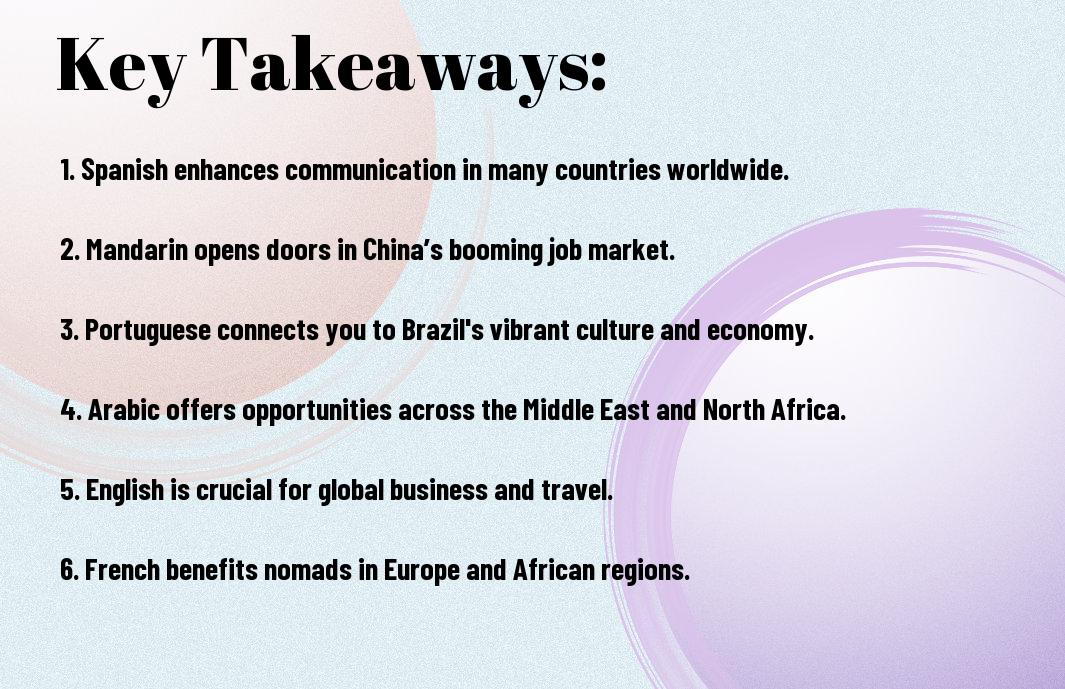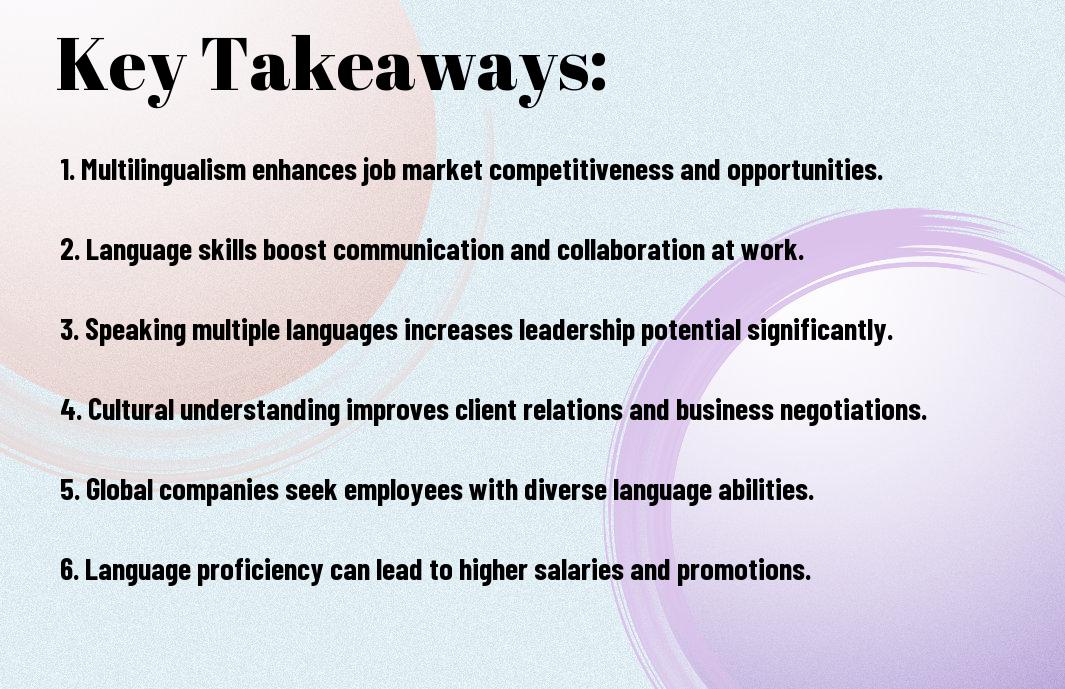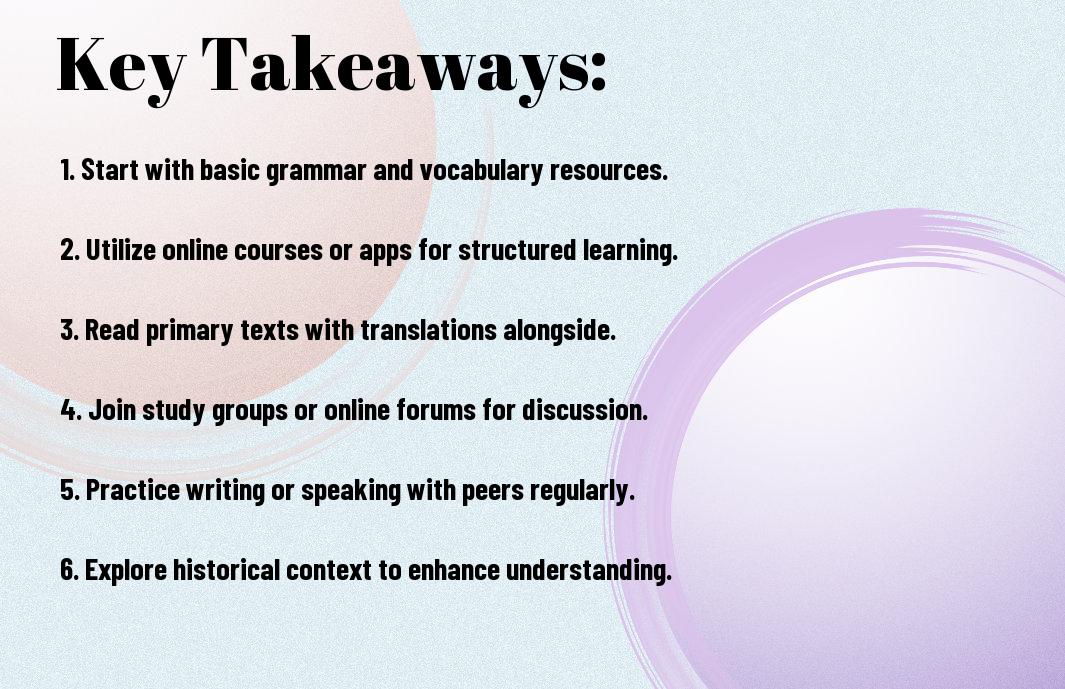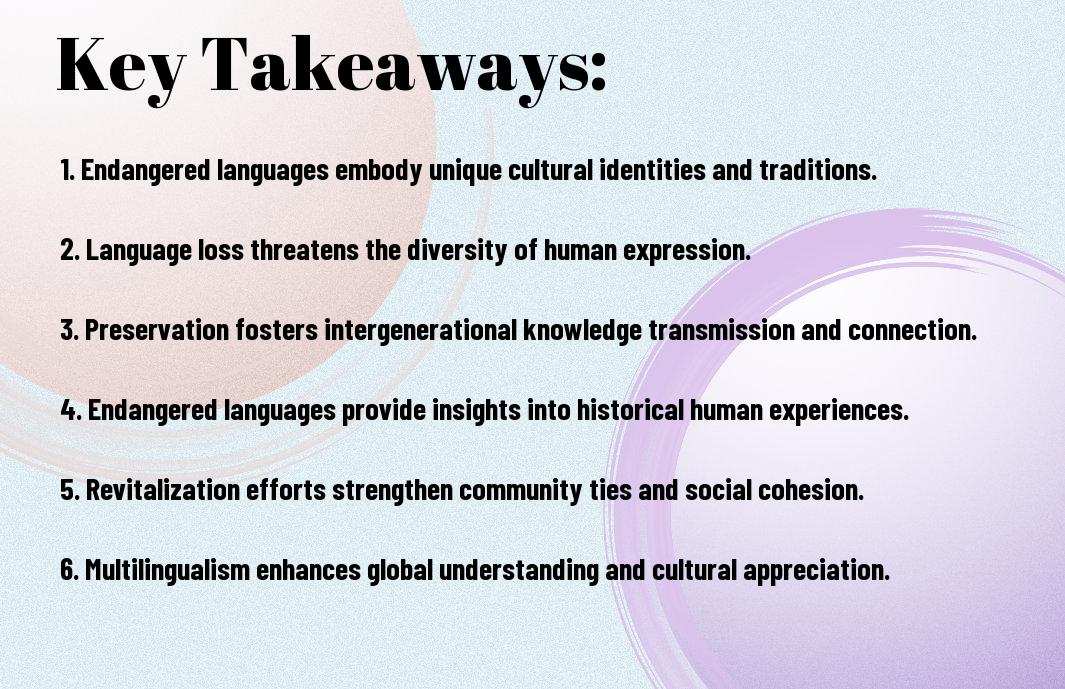As you initiate on your digital nomad journey, you’ll likely encounter various languages and cultures. Your ability to communicate effectively will greatly impact your experience. You’ll want to learn languages that will open doors to new opportunities and allow you to connect with locals. With your travels taking you to diverse destinations, learning the right languages will enhance your adventures and broaden your professional network, making your digital nomad lifestyle more enjoyable and successful.
Key Takeaways:
To thrive as a digital nomad, learning the right languages can significantly enhance your experience and opportunities. Here are the key points to consider:
- Learning Spanish can be highly beneficial due to its widespread use across the globe, especially in Central and South America, making it easier to communicate and navigate through various countries.
- French is another valuable language for digital nomads, given its official status in several countries in Africa and the Caribbean, and its usefulness in parts of Europe and Canada.
- For those interested in working or traveling in Asia, Mandarin Chinese offers immense opportunities, considering China’s significant economic influence and the number of Chinese communities worldwide.
- Portuguese is also a worthwhile language to learn, particularly for digital nomads intending to spend time in Brazil or Portugal, as it facilitates deeper cultural immersion and broader job prospects.
- Lastly, understanding German can be advantageous for digital nomads aiming to explore or work in European countries, especially given Germany’s strong economy and the language’s prevalence in several European nations.
Most In-Demand Languages
For digital nomads, learning the right languages can open doors to new destinations and opportunities. You’ll find that certain languages are more in-demand than others, and being proficient in them can greatly enhance your travel and work experiences.
Spanish for Latin American Adventures
About 460 million people speak Spanish, making it a highly valuable language to learn, especially if you’re planning to explore Latin America, where you’ll encounter a rich culture and diverse landscapes.
Portuguese for European and Brazilian Escapades
At the heart of your European and Brazilian travels lies the Portuguese language, spoken by over 221 million people, offering you a unique chance to connect with the locals and immerse yourself in the vibrant cultures of Portugal and Brazil.
Indeed, as you probe deeper into the Portuguese language, you’ll discover its nuances and expressions that will help you navigate the streets of Lisbon, engage with the friendly locals in Rio, and make the most of your experiences in these incredible destinations, making your travels even more enjoyable and authentic.

Languages for Asian Expeditions
You will find that learning a new language can enhance your travel experience in Asia, allowing you to connect with locals and immerse yourself in the culture.
Mandarin for Chinese Culture Immersion
Linguistic skills in Mandarin will unlock the secrets of Chinese culture, enabling you to navigate the country with ease and engage with the locals in their native tongue.
Japanese for Tokyo’s Neon Dreams
Besides the initial fascination with Japanese characters, learning the language will help you research deeper into the vibrant culture of Tokyo, from neon-lit streets to ancient temples.
Consequently, as you explore the city, you will discover that speaking Japanese opens doors to unique experiences, from ordering sushi at a local restaurant to reading signs and menus with ease, making your time in Tokyo truly unforgettable and tailored to your interests.

European Languages for Digital Nomads
Your language skills can open doors to new cultures and experiences as a digital nomad, and learning a European language can be a great starting point, as seen in The 5 Best Languages To Learn As An Expat | William Russell, which highlights the benefits of language learning for expats.
German for Efficiency and Beer Gardens
Before venturing into the world of German language and culture, you’ll find that it’s a highly structured and efficient language, perfect for your productivity as a digital nomad, and who can forget the famous German beer gardens.
French for Romance and Cuisine
French is a language that exudes romance and love for fine cuisine, and as you explore the French culture, you’ll discover the beautiful pronunciation and grammar that makes it a popular choice among digital nomads.
German may have its efficiency, but French is a language that will make you appreciate the finer things in life, and as you learn French, you’ll find that it’s not just about the language, but about the culture and history that comes with it, and you’ll be able to indulge in the delicious French cuisine and wine, making your digital nomad experience even more enjoyable.
Language Learning Tips for Nomads
Once again, as a digital nomad, you’ll need to adapt quickly to new environments. Here are some tips:
- Set language learning goals
- Practice consistently
. After mastering the basics, you’ll be well on your way to communicating effectively with locals.
Immersive Techniques for Rapid Learning
Like language acquisition experts, you can use immersive techniques to rapidly learn new languages, surrounding yourself with the language you want to learn, and engaging in conversations with native speakers.
Online Resources for Language Mastery
An abundance of online resources are available to help you master your target language, including language learning apps, podcasts, and online courses, all designed to help you achieve your language goals.
Resources such as language exchange websites, online tutoring platforms, and social media groups can connect you with native speakers and other language learners, providing you with a supportive community to practice your language skills and get feedback on your progress, helping you to stay motivated and track your improvement over time, as you work towards becoming proficient in your target language.
Destination Guides
Now that you’ve decided to commence on a digital nomad journey, it’s time to consider your destinations. You’ll want to choose places with a great balance of work and play, and that’s where our destination guides come in.
Thailand for Beachside Wi-Fi and Street Food
On the shores of Thailand, you’ll find a haven for digital nomads, with reliable Wi-Fi and delicious street food at your fingertips. You can work from a beachside cafe or co-working space, and enjoy the local culture in your free time.
Mexico for Vibrant Culture and Affordable Living
Beside the stunning natural beauty of Mexico, you’ll discover a thriving expat community and affordable cost of living, making it an ideal destination for digital nomads like you. You can explore vibrant cities, try new foods, and experience the rich culture of Mexico.
With Mexico as your base, you can easily travel to other parts of Central and South America, or simply enjoy the laid-back atmosphere and focus on your work. You’ll find that your money goes further in Mexico, allowing you to maintain a high quality of life and pursue your passions as a digital nomad.
Career Opportunities
Many digital nomads find that learning a new language opens up a wealth of career opportunities, allowing you to work remotely and travel the world. You can leverage your language skills to secure jobs in various fields, increasing your earning potential and freedom.
Translation and Interpretation Services
Beneath the surface of language learning lies a world of opportunities in translation and interpretation services, where you can offer your skills to clients worldwide, helping them communicate across linguistic and cultural boundaries.
Teaching English Abroad and Online
Prior to becoming a digital nomad, you may have considered teaching English as a way to fund your travels, and with language skills, you can teach students from diverse backgrounds, both online and offline, creating a fulfilling and flexible career.
The possibilities for teaching English abroad and online are vast, and as you gain experience, you can develop your own teaching style, create courses, and even start your own online school, giving you the freedom to work from anywhere and connect with students globally, allowing you to grow both personally and professionally.
Conclusion
Considering all points, you can enhance your digital nomad experience by learning the right languages. You will find that speaking the local language can open doors to new opportunities. To learn more, visit 3 Best Languages Every Digital Nomad Must Master In Order To Succeed and discover how your language skills can boost your travels and your career as a digital nomad, allowing you to make the most of your experience.;
FAQ
Q: What are the most in-demand languages for digital nomads to learn for better job opportunities?
A: As a digital nomad, learning languages such as Spanish, Portuguese, and German can significantly enhance your job prospects. Spanish is widely spoken in many countries with a growing digital nomad scene, such as Mexico, Colombia, and Spain. Portuguese is the official language of Portugal and Brazil, both of which offer a thriving environment for digital nomads. German, on the other hand, is a highly sought-after language in the European job market, with many companies operating in Germany and other German-speaking countries.
Q: How can learning a new language impact a digital nomad’s ability to connect with local communities and cultures?
A: Learning the local language of the countries you visit as a digital nomad can greatly facilitate your ability to connect with the community and immerse yourself in the culture. By speaking the language, you can engage in deeper conversations with locals, understand cultural nuances, and participate in community events. This can lead to a more authentic and fulfilling experience, allowing you to build meaningful relationships and gain a deeper understanding of the local way of life. Additionally, speaking the local language can also open up opportunities to collaborate with local businesses, freelancers, and entrepreneurs, further enriching your digital nomad experience.
Q: What are some effective ways for digital nomads to learn a new language while traveling and working remotely?
A: Digital nomads can learn a new language through a variety of methods, including language learning apps, online courses, and language exchange programs. Many apps, such as Duolingo and Babbel, offer interactive and flexible learning experiences that can be tailored to your schedule and learning style. Online courses and tutoring services, such as italki and Verbling, provide personalized instruction and feedback. Language exchange programs, where you can practice speaking with native speakers in exchange for teaching them your native language, are also a great way to improve your speaking skills and get feedback on your pronunciation and grammar. Additionally, many cities offer language schools and conversation clubs, where you can meet fellow language learners and practice speaking in a supportive environment.







